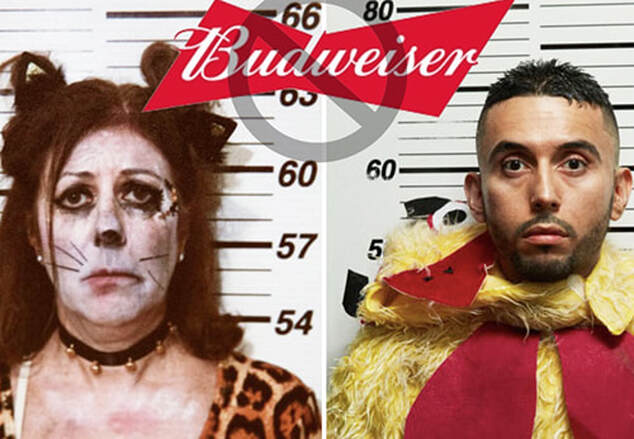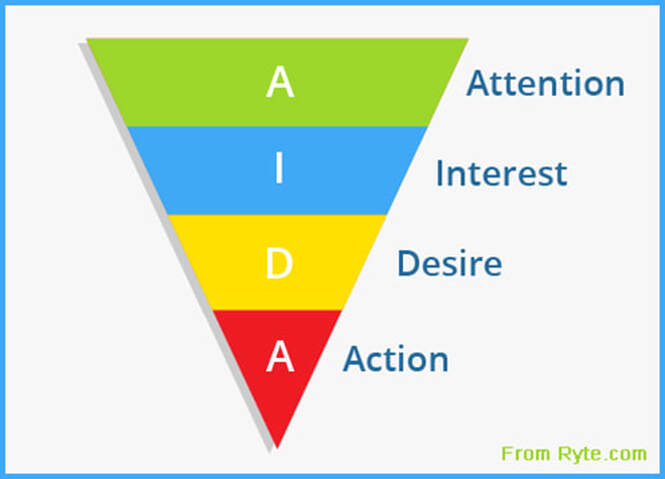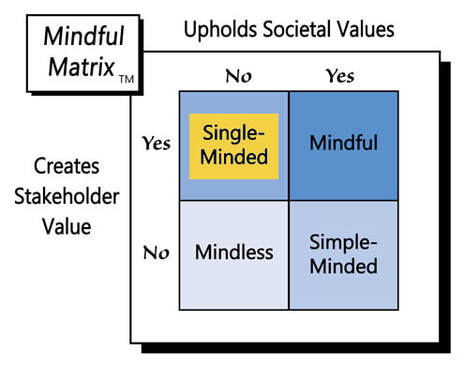It may come as a shock that the “King of Beers” created a unique Halloween-themed advertising campaign to discourage drinking. Budweiser, flagship brand of the iconic American beer company Anheuser-Busch, which is now a subsidiary of Belgium-based ABInBev, used the marketing firm David-Miami to develop some edgy Halloween-inspired ads to decrease drinking.
Budweiser’s promotion featured photos of several real people wearing Halloween costumes and funny looks on their faces. While there’s nothing unusual about pictures like that, especially around Halloween, what made these shots different was that they were mugshots. One of the photos, for instance, had a woman in a cat costume with black and white face-paint. Below her was the caption “Don’t let Halloween haunt you forever,” the Budweiser logo, and the tagline “Drink Wiser.”
In many ways, what Budweiser did was great. While alcohol is an important part of many people’s lives when socializing and celebrating, it’s also an addictive substance that when used in excess can wreak havoc on those using it and those who cross paths with them (e.g., physical and verbal abuse, drunk driving). Some call alcohol a drug and describe its use in the U.S. as an epidemic.
Still, it’s reasonable to ask the question: Does a company whose livelihood depends on beer sales really want people to drink less? There just aren’t many examples of organizations trying to decrease demand for their own products. The only two I can think of off-the-top are power companies asking residents to use less electricity during peak consumption times and casinos providing 800 numbers for those with gambling problems. I’m not sure the second example even qualifies.
Budweiser does, however, have a history of prodding people to ‘drink responsibly.’ Over 100 years ago, the company used the tagline “Budweiser Means Moderation,” and about 35 years ago the firm’s ads challenged consumers to “Know When to Say When.” The current “Drink Wiser” campaign, which kicked-off last year, urges customers to “hydrate between Buds.” Also, beers bought in certain locations between October 21 and November 1 on Drizly entitled drinkers to a $5 Lyft gift card “for a safe ride home.”
So, Budweiser has taken some steps to mitigate overindulgence, but do these measures really make a difference? In a 2008 study, Atkin, McCardle, and Newell found that consumers tended to perceive alcohol moderation advertisements as ambiguous and self-serving. Jones, Hall, and Kypril’s 2017 research produced similar findings: Consumers had difficulty interpreting many of the alcohol industry’s moderation messages.
The results of these studies and similar ones don’t bode well for alcohol moderation messages overall, but perhaps Budweiser’s “Drink Wiser” Halloween photo campaign was an exception. In lieu of research specific to the campaign, it may be helpful to dissect the ads and predict consumers’ likely response. So, here’s this marketer’s assessment of the campaign using communication's well-known AIDA model (attention, interest, desire, action):
- The ads’ colorful and unusual photos of costumed people, probably grabbed viewers’ attention.
- The curious-looking pictures likely also kept viewers’ interest, as they wondered why the bizarre subjects were posing for the camera and what they had to do with Budweiser, whose large logo was prominently displayed with the ad copy, i.e., more than just a small tag at the bottom.
- The use of a humor appeal probably impacted viewer’s interpretations of the ads and ultimately their desire to accept the ads’ supposed call for drinking in moderation. The funny looking photos likely acted as “dissonant visuals,” serving to counteract the ads’ serious message. One might even say the comical pics made light of drunk driving.
- What’s more, with the tagline “Drink Wiser” appearing just inches below the large Budweiser logo, it’s conceivable that consumers interpreted the ads’ call-to-action not to ‘drink smarter’ but simply to ‘drink Budweiser.’ In other words, people may have seen “Wiser” simply as an abbreviation for Budweiser, in the same way Pizza Hut is sometimes call “the Hut.”
So, were Budweiser’s Halloween-themed mugshot ads effective in deterring irresponsible drinking? I don’t know, but to the Gen Ys and Gen Zs to whom to the campaign most likely appealed, the ads probably just seemed like another application of the irreverent humor brands often try to use to attract young consumers to their products. In other words, the supposed deterrent actually may have acted more as a purchase stimulant.
It’s hard to judge motives—Did Budweiser really want to keep people from irresponsible alcohol consumption, or was it secretly banking on higher Halloween-holiday beer sales? We don’t know, but analysis of the ads makes it seem improbable that people were inspired to “drink wiser” as much as they were reminded to ‘drink Budweiser.’ As a result, the company’s likely misinterpreted mugshots are a snapshot of “Single-Minded Marketing.”
Learn more about the Mindful Matrix and Mindful Meter.
Check out Mindful Marketing Ads and Vote your Mind!




 RSS Feed
RSS Feed